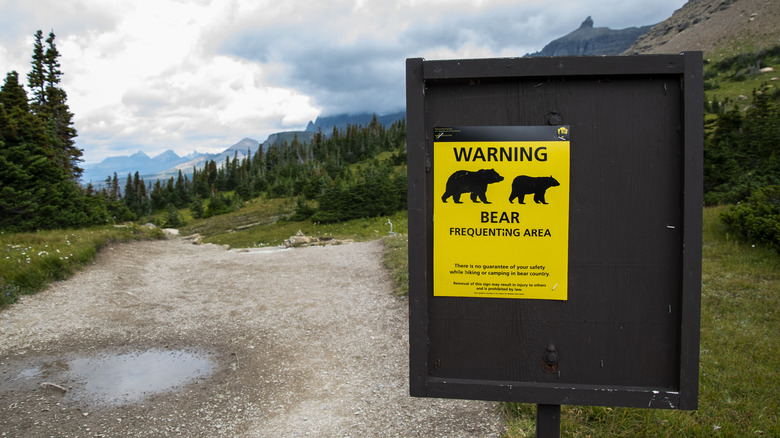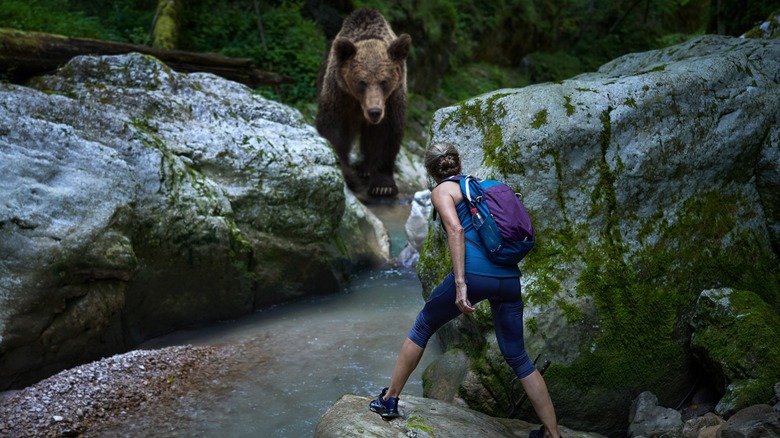Memorizing This Cute Little 3 Line Poem Could Save Your Life Camping Or Hiking In Bear Country
We may receive a commission on purchases made from links.
It is perfectly reasonable for hikers to feel a little on edge as civilization recedes into the distance and they descend into bear country. You know the feeling: When silence pervades the land, and every snapping twig and rustle in the underbrush causes a sharp adrenaline spike. You listen for the sounds, your bear spray primed, a few words of prayer rattling inside your mind. The only thing that can assuage those fears, really, is to be prepared.
So, it's a good idea to memorize the bear poem: "If it's brown, lie down. If it's black, fight back. If it's white, say goodnight." The third line is a bit of a tongue-and-cheek addition — emphasizing why you don't ever want to run into a polar bear — so let's focus on the first two. For many hikers, the instinct to run if threatened by a snarling grizzly will be overwhelming. However, they're surprisingly agile, which means it's better if you stand your ground. First, try using bear spray — preferably a strong variety, like UDAP's bear spray, with concentrated capsaicin (the same compound in chiles). Next, lie down in the fetal position, cover your neck, and play dead. The grizzly may toss you around, but, if it thinks the game's up, it'll leave you alone.
Meanwhile, black bears are smaller, and their fur ranges from dark to blond. They also don't have the shoulder humps that identify grizzlies and their claws are shorter. Still, they look intimidating enough. However, if one attacks, you must fight back. Use your bear spray, make yourself big, and create lots of noise. And, whatever you do, don't climb a tree — black bears are famously skilled climbers. If it continues to attack, use whatever you can find as a weapon, aiming blows for the eyes and nose.
Fantatsic bears and where to find them
Black bears are widespread in North America and are even found as far south as Texas, Louisiana, and Florida. Grizzlies live in the wilderness areas of Wyoming, Idaho, and Montana, and are also prevalent throughout Alaska and western Canada. And, if you're looking for polar bears — a foolhardy endeavor — you'll have to head to the continent's most northerly reaches. That said, bears aren't only a blight on the American hiker's nervous system. Some of the world's best nature trails are found in Hokkaido, Japan, which also hosts the nation's largest land predator, the Ussuri brown bear. Meanwhile, in Romania, bear attacks have become an epidemic.
Knowing where to find bears and remembering the handy bear poem are both useful. But what else should you do if you encounter a bear? First, carry bear spray and keep binoculars handy. Additionally, it's also worth asking park rangers about bear activity in the area. Similarly, it's worth trying to understand bear behavior: How do they move? What behavior is considered aggressive? What spooks them? With preparation, you're much more likely to act with clarity.
Granted, that's easier said than done; the body and mind don't always react calmly under duress. Thankfully, bears are generally shy animals, and they only approach humans when they're hungry or startled. Whatever the case, remember to keep your distance, as they don't always act predictably.

